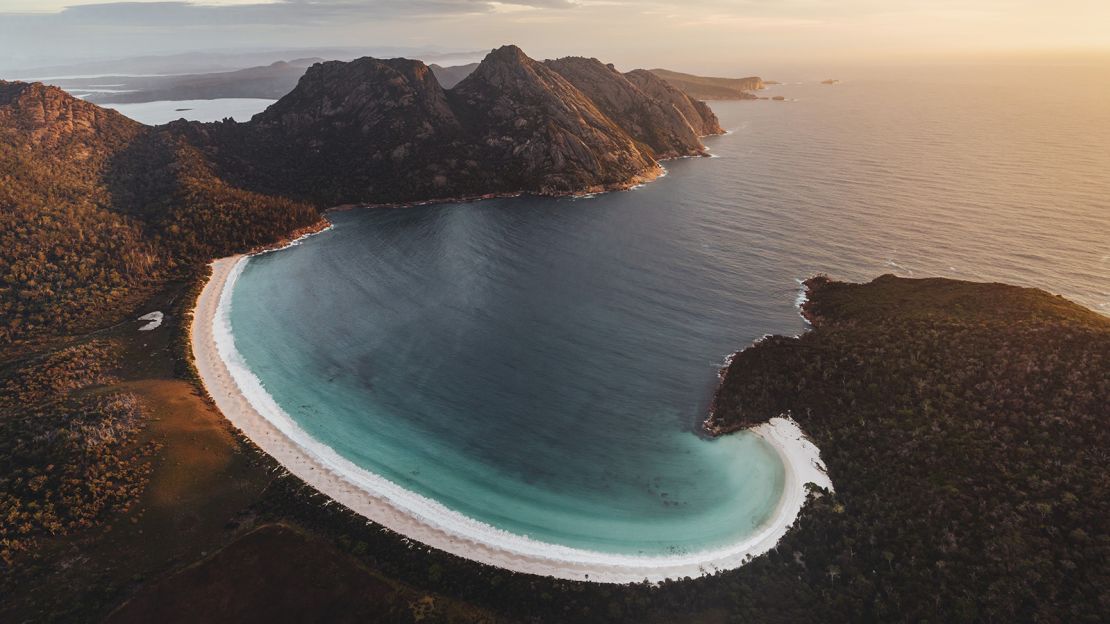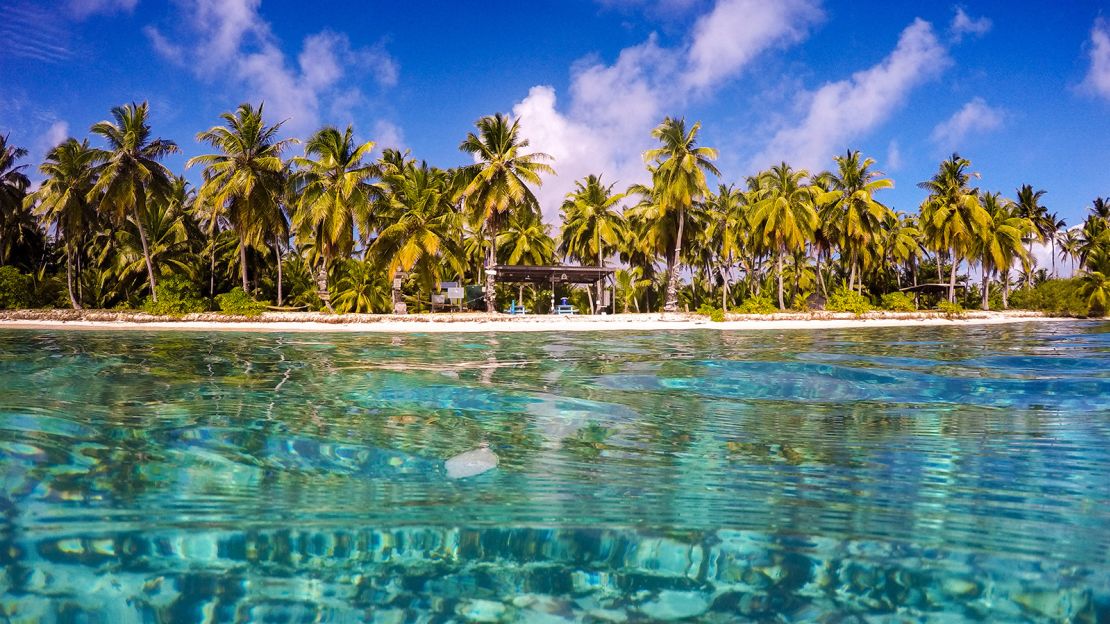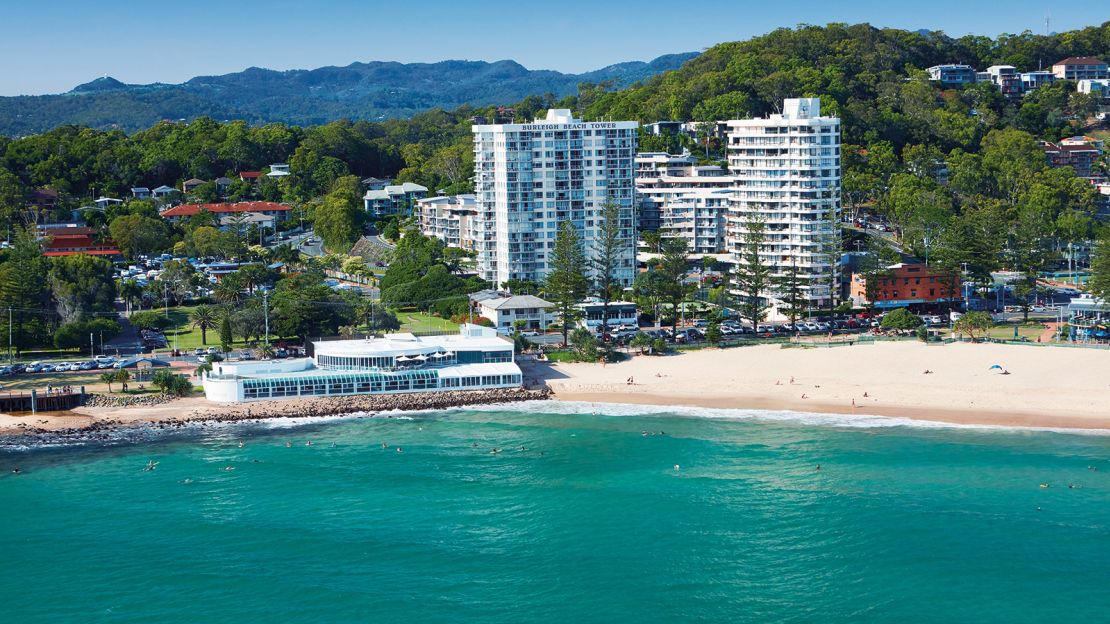With a coast extending more than 50,000 kilometers, Australia offers beach-hoppers a staggering 12,000 stretches of sand from which to choose.
Needless to say, picking standouts is no easy feat, but we’ve happily done the research to uncover the shorelines that come out tops.
From uber-popular Bondi to far-flung Cossies, here’s your guide to 10 of the best beaches in Australia when you travel here.
Best for people-watching: Bondi Beach
This perennially packed Sydney beach makes it onto most “Australia’s best” lists – for good reason.
Aside from its enticing union of white sand, curling waves and sandstone cliffs, Bondi also offers a host of diversions: achingly cool cafes and bars, an ocean pool chiseled into the rocks, weekend markets and an annual alfresco sculpture festival that sees larger-than-life installations erected in the surrounding parkland.
It also comes with significant history, being the birthplace of the Surf Life Saving Club – the world’s first was established here in 1907, the same year Bondi bathing suit protests paved the way for bikinis to become common beach attire.
Best for powder-soft sand: Whitehaven Beach
Spanning seven kilometers along Whitehaven Island in the Great Barrier Reef, this stretch of sand is composed of 98% pure silica – essentially, this means it is so impossibly white and powder-soft that it actually squeaks when you walk on it.
It also means that it doesn’t get hot, which is a good thing, because the sun in this pocket of Queensland can be intense.
You can get to the island by boat or helicopter and spend the day hiking to lookouts, snorkeling in a blindingly turquoise sea the temperature of bath water, or sipping Champagne under casuarina trees.
And if you can’t bear to leave, there’s a rustic campsite just steps from the sand.
Best for invigorating dips: Wineglass Bay

The most southern state in Australia, Tasmania is not the first place that springs to mind when you’re imagining beautiful beaches.
But this petite island, around 250 kilometers from the Aussie mainland, is home to some of the country’s most spectacular shorelines.
In the middle of Freycinet National Park, a three-hour drive north of Hobart, Wineglass Bay’s postcard-perfect harbor is where pink granite peaks meet a clamshell-shaped beach of powdery sand, fading into a sapphire sea that is eye-poppingly pretty – but also pretty cold (Antarctica is the next landfall south from here).
It’s regularly voted one of the top coastal coves in the world, let alone Australia, despite its rather gruesome past: The bay takes its name from the country’s whaling era, when the waters here were stained red with blood.
Best for not swimming: 75 Mile Beach
While this seemingly endless beach on Queensland’s Fraser Island is stunningly scenic, it’s not one you should visit for sunbathing and swimming.
A landing strip for light aircraft and a designated highway, the long stretch of sand is commonly used by 4WD vehicles circumnavigating this slip of land – the world’s largest sand island and the only place in the world where tall rainforest grows from the sand.
Aside from being able to drive along it, the beach is known for its extremely photogenic Maheno shipwreck, not to mention dramatic volcanic rock formations at Indian Head.
If you do want to take a dip, turn off your engine at Champagne Pools, a series of sandy, shallow pools protected from the sea stingers and tiger sharks that patrol the open ocean.
Best for sunsets (and moon rises): Cable Beach
Just outside the city of Broome in Western Australia you’ll find an Indian Ocean beach that hosts what many attest are Australia’s fieriest sunsets.
Twenty-two kilometers of pure white sand and azure water, Cable Beach is bounded by dunes on one side and ochre-red cliffs on the other. Its position on the west coast of the country means that it’s a popular spot for watching the last of the day disappear, and many choose to take in the setting sun from the back of a camel – evening parades here are a regular occurrence.
Time your visit right and you’ll also witness the “Staircase to the Moon,” a monthly phenomenon that sees the radiance of the full moon become so intense it casts ripples over the ocean, like a glowing staircase.
Best for no tan lines: Nudey Beach
As its name suggests, this sandy cove in Far North Queensland has long been a popular spot for those who like to snorkel and sunbathe sans swimming costumes.
While the state is the only one in Australia to not have a legal nudist beach, clothing here is optional, so put away your camera. Located on Fitzroy Island north of Cairns in the Great Barrier Reef, Nudey’s combination of sand and bleached coral makes it a little harder under foot than most, but any discomfort walking – just pack a pair of beach shoes – is well outweighed by the backdrop.
This is a place where the rainforest meets the reef and then smudges into an artist’s palette of blues, from ice-mint to azure and aquamarine. The good news is, you don’t have to leave – check in to the barefoot-luxe Fitzroy Island Resort and linger on Nudey as long as you like.
Best for swimming without another soul: Cossies Beach

Never heard of the Cocos (Keeling) Islands? You’ll want to familiarize yourself, because these remote Australian landfalls are home to one of the country’s most scenic stretches of coastline.
Way out in the Indian Ocean (closer, geographically, to Indonesia than Australia), the archipelago’s 27 tiny islands and coral atolls are like a beacon for white-sand beaches, palm trees and blissfully blue lagoons.
The star is Cossies on Direction Island, a favored pitstop for visiting round-the-world yachts.
You can circumnavigate the entire islet in less than an hour, which leaves plenty of time for lying on the sand – which you’ll likely have entirely to yourself – or snorkeling the teal waters in search of German ship SMS Emden, which sank here during the Battle of Cocos during World War I.
Best for wildlife: Neds Beach
Many people touch down on tiny Lord Howe Island and never want to leave, which explains why locals have a policy prohibiting outsiders from purchasing property on the island.
A dramatic volcanic outcrop in the Tasman Sea between Australia and New Zealand, Lord Howe’s shoreline is where sheer black basalt cliffs tumble to the sea, enveloped by kentia palms and rainforest that’s home to an incredible diversity of endemic flora and fauna.
The wild backdrop just makes you appreciate the sparkling waters of Neds Beach even more.
On the northeast coast, this often-deserted strand comes with an “honesty box,” where you can borrow snorkels, masks and fins in exchange for a few dollars – as soon as you dive in you’ll be engulfed by a kaleidoscope of mullet, wrasse, garfish, silver-drummer and green turtles.
In addition to being home to some of the calmest fish- and coral-rich waters in eastern Australia, Neds is also the breeding ground for a number of seabird colonies, including masked boobies and little terns.
Best for watersports: Burleigh Beach

Australia’s sixth-largest city, the Gold Coast has a 57-kilometre-long strip of coastline on its doorstep, much of it linking lovely, laid-back suburbs including Burleigh Heads, home to one of Queensland’s most epic stretches of sand.
What makes this particular patch stand out is its great waves on one corner – for all the surfers – and a whisper-calm tributary on the other, for SUP fans, kayakers and beginner swimmers.
This is also the home of the Burleigh Boardriders, the longest-running club of its kind on the coast, where the iconic “Burleigh barrel” was made legendary in the 1970s.
If you need another reason to visit, the foreshore is wrapped in a blanket of fragrant pines, where craft markets pop up on weekends and cool cafes sell artisan coffee and brunch staples.
Best for surfing: Bells Beach
Around 100 kilometers southwest of Melbourne along the Great Ocean Road, Bells Beach is a pilgrimage site for surfers the world over.
1991’s “Point Break” would have you believe this is where the final scene of the movie was filmed (it wasn’t).
But that doesn’t mean that its swells – which slow down and steepen over the reef-strewn shallows – are any less gnarly than depicted in that monumental surf battle; the rather epic point break means that jumping in the water here is only for the experienced.
For everyone else, the cove’s red clay cliffs create a natural amphitheater, and are the ideal vantage point to watch annual competitions such as the Rip Curl Pro Surf and Music Festival.



















